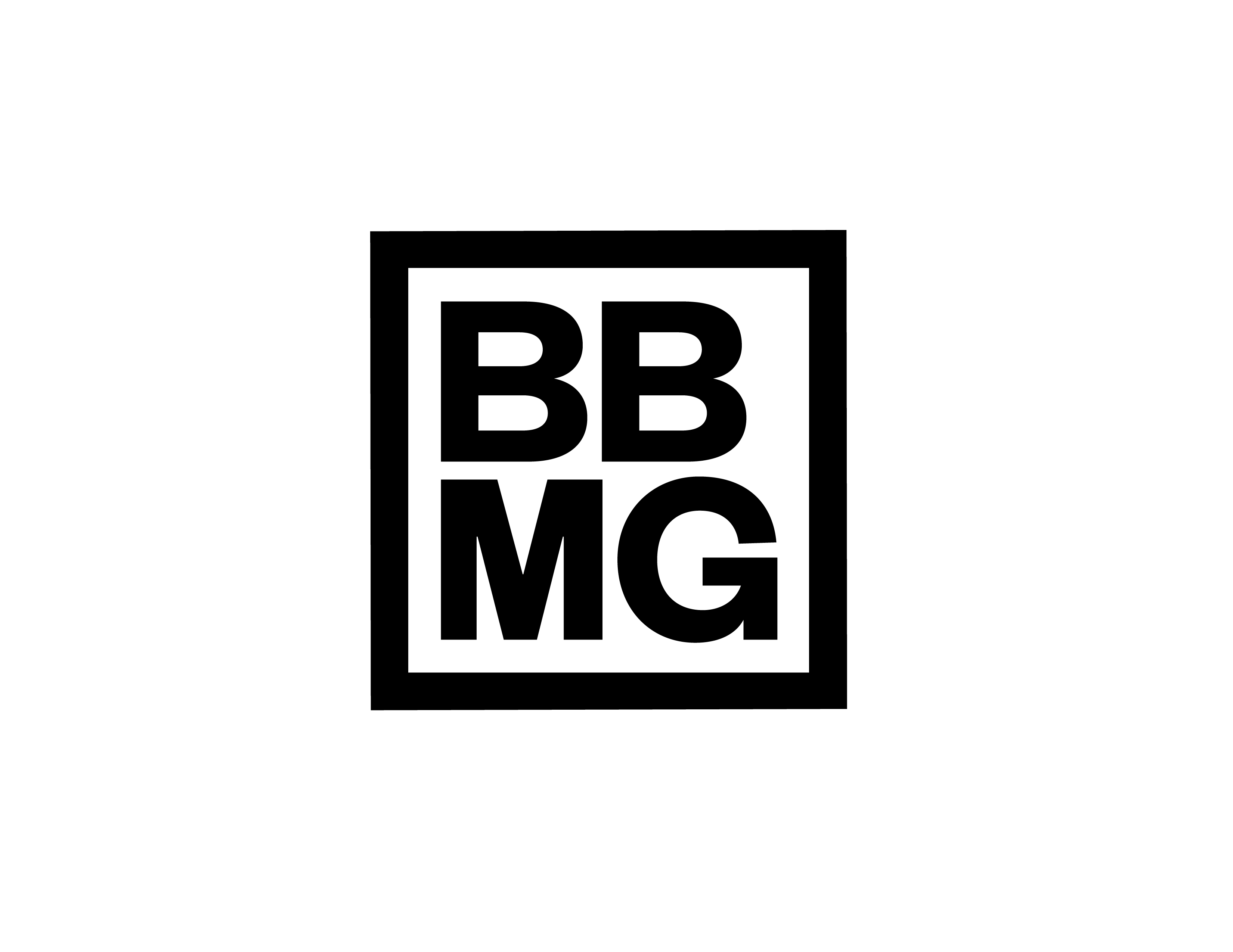

BBMG

New York, United States
May 2007
Advertising & market research
Service with Minor Environmental Footprint
United States
BBMG is a branding and social impact consultancy that works with leaders who won’t wait on things that can’t wait. With a team of strategic creatives and creative strategists, culture experts and design thinkers, the firm specializes in sustainability and social impact consulting, brand design consulting, audience research and insights, and purpose-driven marketing and communications for global consumer brands, mission driven organizations, and nonprofits and foundations. BBMG helps organizations build Regenerative Brands that are aware, additive and alive to transform the world we’re in and create the future we want. Recent clients include Burton Snowboards, Estée Lauder, Just Salad, Macy’s, The North Face, and Target, as well as non-profit organizations such as ASPCA, Ford Foundation, Giffords, Marine Stewardship Council, OceanX, PBS, and Planned Parenthood Federation of America. BBMG is a Certified B Corporation based in Brooklyn. To lBBMG is pioneering a new methodology for creating, launching and maintaining enduring brands. Every decision in the lifecycle of a product or service—from design to development to delivery to impact—is a brand decision.That’s why their approach is designed to integrate innovation, sustainability strategy, product development and brand marketing.
Overall B Impact Score
Governance 18.7
Governance evaluates a company's overall mission, engagement around its social/environmental impact, ethics, and transparency. This section also evaluates the ability of a company to protect their mission and formally consider stakeholders in decision making through their corporate structure (e.g. benefit corporation) or corporate governing documents.
What is this? A company with an Impact Business Model is intentionally designed to create a specific positive outcome for one of its stakeholders - such as workers, community, environment, or customers.
Workers 44.1
Workers evaluates a company’s contributions to its employees’ financial security, health & safety, wellness, career development, and engagement & satisfaction. In addition, this section recognizes business models designed to benefit workers, such as companies that are at least 40% owned by non-executive employees and those that have workforce development programs to support individuals with barriers to employment.
Community 33.7
Community evaluates a company’s engagement with and impact on the communities in which it operates, hires from, and sources from. Topics include diversity, equity & inclusion, economic impact, civic engagement, charitable giving, and supply chain management. In addition, this section recognizes business models that are designed to address specific community-oriented problems, such as poverty alleviation through fair trade sourcing or distribution via microenterprises, producer cooperative models, locally focused economic development, and formal charitable giving commitments.
What is this? A company with an Impact Business Model is intentionally designed to create a specific positive outcome for one of its stakeholders - such as workers, community, environment, or customers.
Environment 12.9
Environment evaluates a company’s overall environmental management practices as well as its impact on the air, climate, water, land, and biodiversity. This includes the direct impact of a company’s operations and, when applicable its supply chain and distribution channels. This section also recognizes companies with environmentally innovative production processes and those that sell products or services that have a positive environmental impact. Some examples might include products and services that create renewable energy, reduce consumption or waste, conserve land or wildlife, provide less toxic alternatives to the market, or educate people about environmental problems.
Customers 8.4
Customers evaluates a company’s stewardship of its customers through the quality of its products and services, ethical marketing, data privacy and security, and feedback channels. In addition, this section recognizes products or services that are designed to address a particular social problem for or through its customers, such as health or educational products, arts & media products, serving underserved customers/clients, and services that improve the social impact of other businesses or organizations.
What is this? A company with an Impact Business Model is intentionally designed to create a specific positive outcome for one of its stakeholders - such as workers, community, environment, or customers.